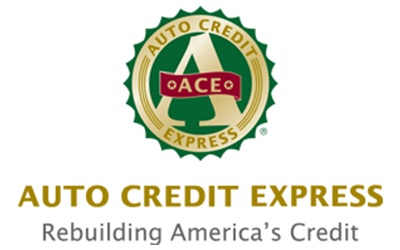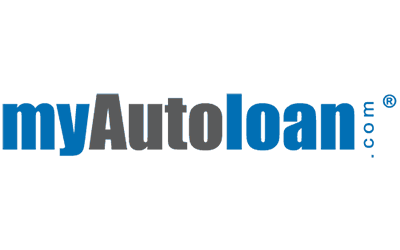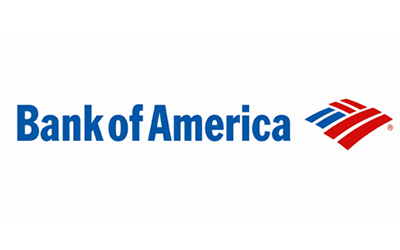Bad credit can make getting approved for a loan feel impossible. But offering collateral—such as a savings account, car, or home equity—can improve your chances and even get you a better interest rate.
Lenders are more willing to approve loans when they have a way to recover their money if you default. That means secured loans are often easier to get than unsecured loans, even with bad credit. You might also qualify for larger loan amounts and lower interest rates.
9 Best Secured Loans for Bad Credit
If you’re struggling to get approved due to bad credit, securing your loan with collateral can improve your chances. Some lenders specialize in these loans, offering better approval odds and potentially lower rates. Here are the top options to consider.
1. Upgrade
- Loan Amounts & APR: $1,000 to $50,000, with APRs ranging from 8.49% to 35.99%.
- Collateral Requirements: Requires a vehicle as collateral; must meet lender’s equity and condition standards.
- Approval & Funding Time: Online application with funding as soon as one business day.
2. OneMain Financial
- Loan Amounts & APR: $1,500 to $25,000, with APRs ranging from 25.10% to 36.00%.
- Collateral Requirements: Requires a vehicle title; the car must meet equity and condition requirements.
- Approval & Funding Time: Must visit a branch in person; some loans fund the same day.
3. Wells Fargo
Loan Amounts & APR: $3,000 to $100,000; APR varies based on creditworthiness and collateral.
Collateral Requirements: Must use a Wells Fargo savings account or CD as collateral.
Approval & Funding Time: Online or in-branch application; funding can be as fast as the next business day.
Use Your Car as Collateral for a Loan
If you own a vehicle, you may be able to use it to secure a loan. Instead of taking out a standard secured personal loan, you can explore options like cash-out refinancing or an auto equity loan.
With a cash-out refinance, you replace your current auto loan with a new one for a higher amount—allowing you to access the difference in cash. However, the amount you can borrow depends on your car’s equity. For example, if your car is worth $15,000, and you owe $5,000, you may be able to refinance for up to $10,000.
Lenders typically require the vehicle to be in good condition with a reasonable number of miles remaining. Some also have restrictions on how much time must be left on your existing loan.
Here are some of the best lenders that accept vehicles as collateral, even if you have bad credit.
4. Auto Credit Express
- Loan Amounts & APR: Varies by lender; APR depends on credit profile and vehicle equity.
- Collateral Requirements: Requires a vehicle with sufficient equity; lender may have mileage and age restrictions.
- Approval & Funding Time: Quick online prequalification; lender match within minutes.
5. Car.Loan.com
- Loan Amounts & APR: Varies by lender; rates depend on credit score and vehicle equity.
- Collateral Requirements: Must have a vehicle with sufficient equity; lender may impose mileage or age restrictions.
- Approval & Funding Time: Quick online prequalification; lender match within minutes.
6. MyAutoLoan
- Loan Amounts & APR: $5,000 to $100,000; APR varies based on credit score and vehicle equity.
- Collateral Requirements: Requires a vehicle with sufficient equity; lender may have mileage and age restrictions.
- Approval & Funding Time: Online application with multiple loan offers within minutes.
Use Your Home as Collateral for a Loan
Your home is likely your most valuable asset, making it a strong option for securing a loan. Homeowners can access funds by using a cash-out refinance or a home equity line of credit (HELOC), both of which allow you to borrow against the equity in your home.
These options typically offer lower interest rates than other secured loans since they are backed by real estate. However, they also carry more risk—if you fail to make payments, you could lose your home.
If you’re considering using home equity to secure a loan, here are some of the best lenders to explore.
7. Rocket Mortgage
- Loan Amounts & APR: Varies based on loan type, credit score, and home equity.
- Collateral Requirements: Must have sufficient home equity; typically requires a credit score of 580 or higher.
- Approval & Funding Time: Online application with a fast approval process; closing times vary but average 30-45 days.
8. Navy Federal Credit Union
- Loan Amounts & APR: Varies by loan type; competitive rates for members.
- Collateral Requirements: Must be a Navy Federal member and have sufficient home equity.
- Approval & Funding Time: Application available online or in-branch; funding times depend on loan type.
9. Bank of America
- Loan Amounts & APR: HELOC amounts vary; rates depend on credit profile and loan-to-value ratio.
- Collateral Requirements: Requires home equity and a good credit score for the best rates.
- Approval & Funding Time: Online application available; closing process typically takes a few weeks.

How Collateral Loans Work With Bad Credit
If you have bad credit, getting approved for a loan can be tough. Lenders see you as a higher risk, which often means higher interest rates or outright denial. But when you offer collateral—like a car, home, or savings—it reduces the risk for the lender, making approval more likely.
Benefits of a Collateral Loan
- Higher approval odds: Lenders focus more on the value of your asset than your credit score.
- Lower interest rates: Since the lender has a way to recover losses, rates are usually lower than unsecured loans.
- Larger loan amounts: Secured loans often let you borrow more than unsecured loans.
Risks of a Collateral Loan
- You could lose your asset: If you stop making payments, the lender can take your collateral.
- Longer approval process: Some lenders require an appraisal or inspection of the asset before approving the loan.
- Possible fees and closing costs: Some loans come with origination fees, processing fees, or prepayment penalties.
Types of Collateral You Can Use
Collateral can be anything of value that the lender is willing to accept. Here are the most common options:
Your Car
- Auto equity loans: Borrow money based on the equity in your car.
- Cash-out refinancing: Refinance your auto loan for more than you owe and take the difference in cash.
Most lenders require the vehicle to be in good condition and may set limits on mileage or model year.
Your Home
- Home equity loans: Get a lump sum loan based on the equity in your home.
- HELOCs: A revolving line of credit that lets you borrow as needed.
Home loans usually have lower interest rates, but missing payments could put your home at risk.
Your Savings
- CD-secured loans: Use a certificate of deposit as collateral to borrow money.
- Savings-secured loans: Borrow against your savings account balance.
These loans allow you to keep your savings intact while accessing funds, but the money stays frozen until the loan is paid off.
Best Places to Get a Secured Personal Loan
If you’re looking for a secured personal loan, you have several options. Banks, credit unions, and online lenders all offer secured loans, but each has different requirements and benefits.
Banks
Many banks, including U.S. Bank and other national institutions, offer secured personal loans for existing customers. These loans often require a savings account, CD, or another asset held at the bank as collateral.
While banks may offer competitive rates, they also tend to have stricter approval requirements. If you use a savings account or CD as collateral, those funds will be locked until the loan is paid off. Some banks also charge origination fees, which can add to the cost of borrowing.
Credit Unions
Credit unions are a popular choice for secured loans, especially for borrowers with lower credit scores. As nonprofit institutions, credit unions often provide lower interest rates and more flexible terms than banks.
Many credit unions also offer CD-secured loans, allowing members to borrow against their savings while keeping funds intact. Federal credit unions cap APRs at 18%, but additional fees may apply. Membership is required, so you’ll need to check eligibility before applying.
Online Lenders
Online lenders provide a convenient way to apply for a secured personal loan without visiting a branch. Many allow you to check rates without impacting your credit score, making it easier to compare options.
These lenders typically accept a range of collateral, including vehicles and savings accounts. Borrowers with bad credit may still qualify, but APRs can go as high as 36%. Loan amounts and terms depend on the lender and the value of the collateral offered.
How to Compare Collateral Loans
Choosing the right secured loan isn’t just about getting approved—it’s about getting the best deal. Here’s what to focus on when comparing options.
Compare APR
APR (Annual Percentage Rate) is the total cost of borrowing, including interest and fees. The lower the APR, the less you’ll pay over time. Always compare APRs across lenders to find the most affordable loan.
Consider Fees
Lenders may charge several fees that increase the cost of borrowing. Look for:
- Origination fees – Typically 1% to 8% of the loan amount.
- Late payment fees – Can vary, but some lenders charge a flat fee or a percentage of the payment.
- Prepayment penalties – Some lenders charge a fee if you pay off the loan early.
Review Loan Terms
Loan terms affect your monthly payment and total interest cost. Here’s the trade-off:
- Shorter loan terms = Higher monthly payments, lower total interest.
- Longer loan terms = Lower monthly payments, higher total interest.
A shorter term saves money in the long run, but a longer term makes payments more manageable. Choose a balance that fits your budget.
How to Get a Secured Loan
Secured loans can offer better approval odds and lower interest rates, but finding the right one takes some planning. Follow these five steps to get the best deal.
1. Check Your Credit Score
Even with collateral, lenders will look at your credit score. Knowing where you stand can help you find lenders that are more likely to approve you.
2. Decide on Collateral
Lenders accept different types of collateral, such as a car, home, or savings account. Choose an asset with enough value to meet the lender’s requirements.
3. Compare Lenders & Pre-Qualify
Pre-qualifying lets you see potential loan offers without affecting your credit score. Compare interest rates, loan amounts, and repayment terms to find the best option.
4. Review Loan Terms & Fees
Look beyond the interest rate—check for origination fees, late fees, and prepayment penalties. Make sure the monthly payment fits your budget.
5. Apply & Finalize Your Loan
Once you’ve chosen a lender, submit your application along with any required documents. If approved, review the final terms before accepting the loan.
Final Thoughts
Securing a loan with your assets can help you qualify—but if you can’t repay, you risk losing your car, savings, or home. The trade-off is lower interest rates, higher borrowing limits, and better approval odds.
A secured loan makes sense if you’re confident in your ability to repay. But if there’s any uncertainty, the risk may not be worth it. Compare options, read the fine print, and only borrow what you can afford.
Frequently Asked Questions
Can I use multiple assets as collateral for one loan?
Yes, some lenders allow borrowers to use multiple assets to secure a loan, which may increase the loan amount or improve approval chances. For example, a lender might let you use both a vehicle and a savings account as collateral. However, if you default, you risk losing all pledged assets.
Will a secured loan affect my credit score?
Yes, a secured loan can impact your credit score. Making on-time payments can help build credit, while missed payments can lower your score. If the lender reports to the credit bureaus, responsible repayment can improve your credit profile over time.
Can I refinance a secured loan to get better terms?
In many cases, yes. If your credit improves or you build equity in your asset, you may qualify for a better interest rate by refinancing. Some lenders also allow you to switch from a secured loan to an unsecured loan if your financial situation improves.
What happens if my collateral loses value?
If your collateral depreciates significantly, the lender may require additional security or deny refinancing options. Some loans, like auto equity loans, have limits on vehicle age and mileage to reduce this risk.
Can I sell my collateral while I still have the loan?
Generally, no. Most lenders place a lien on the asset, preventing you from selling it until the loan is paid off. If you need to sell your collateral, you may need to pay off the loan balance first or work with the lender to transfer the lien.













